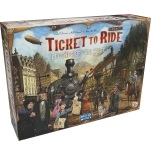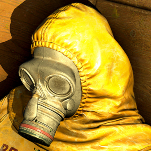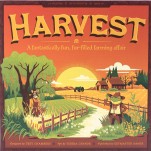The Con Man Game Card Shark Doesn’t Have Enough Confidence in Itself

I have to admit that I was at least a little impressed with myself near the end of my time with Card Shark. Over the course of mere hours, I’d somehow gone from a hapless server to France’s premier gentlemen thief and gambler. Arsene Lupin himself would have had a hard time getting one over on me, and as much as I’m a straight-shooter in real life, I grew enchanted with hustling my way through the frivolous French nobility on my way to the top. However, I wished that I cared more about who I was hustling, who I aligned myself with, and the why of it all over the course of my adventures in Card Shark. More importantly, as satisfying as my hustling game had become, executing on it began to border on tedium. The more I worked my way up the food chain, the more I wished I was back at my humble but satisfying roots. Despite this nagging feeling that the good ol’ days were behind me, though, every time Card Shark’s split-second gambles paid off, I couldn’t help being reeled back in.
Card Shark, the latest take on card games from Nerial (who gave us the excellent Reigns), almost immediately establishes itself as a different kind of game entirely. Ultimately it both is and isn’t. On one hand, your character and his patron, Comte de Saint Germain, do engage many a noble in what appears to be an innocent card game. Almost everything you do in Card Shark revolves around basic playing cards. On the other hand, you do everything but play conventional card games and in the process unfurl a whole other exciting way to ponder simple playing cards.
Instead of playing by the rules, I spent the entirety of Card Shark seemingly creating my own. In reality, Card Shark is less a card game and more a game about cheating at cards. The first tricks I learned outlined the necessity of a rhythm, since trickery takes confidence, not luck. Once I began nailing the pedestrian magic tricks, though, the world of Card Shark’s tricks exploded. I never knew parlor tricks could be so complicated, but Card Shark boasts a whopping 28 of them, and they build atop one another once you start reaching the double digits. To add to the tension, you’re always under the watchful eye of your opponents, who will eventually see enough to call your bluffs, incarcerate you, or even have you killed, which is its own whimsical in-game delight.
This all means that Card Shark’s gameplay has to be tight and snappy, which it typically is. Tricks in Card Shark mostly boil down to a series of quick-time events and inputs on the analog stick that can make any number of things happen. You can thumb through a deck searching for aces or “injog” a card as a marker where you’ve tampered with the deck, for example. Some of these, like injogging cards in between shuffles, began feeling like second nature and rolled right off my back in a breezy, satisfying way as I picked up on the aforementioned rhythm of parlor tricks. Others, however, felt clumsy, which made for a reliable source of tension in late-game bouts, but sometimes just unnecessarily drained my time. To complicate things just a bit more, Card Shark has a strange tutorialization problem.
-

-

-

-

-

-

-

-

-

-

-

-

-

-

-

-

-

-

-

-

-

-

-

-

-

-

-

-

-

-

-

-

-

-

-

-

-

-

-

-








































